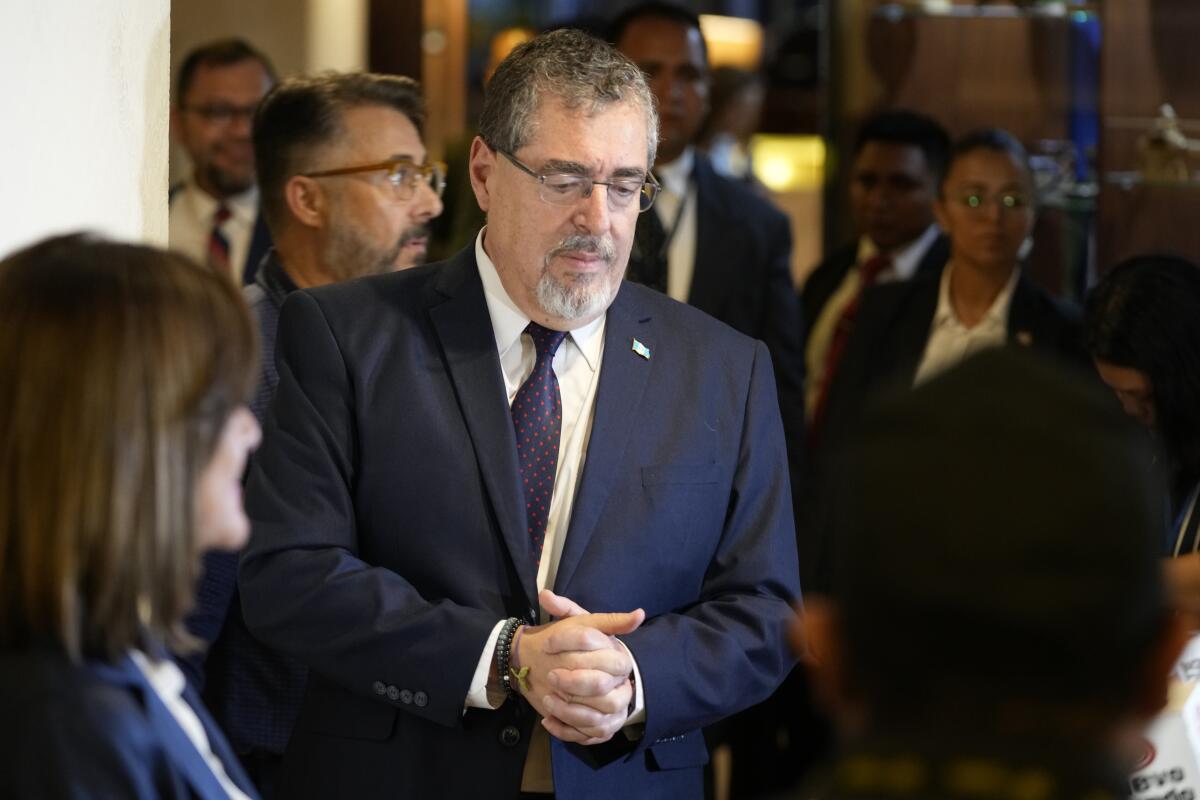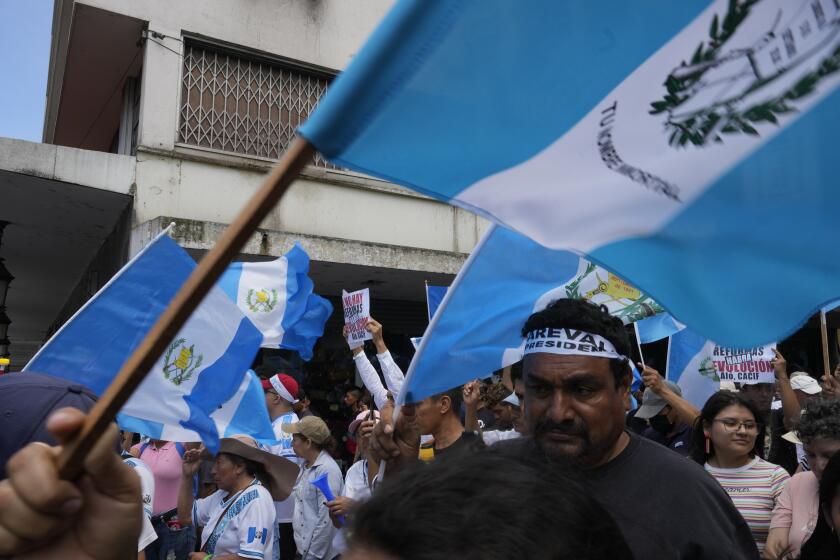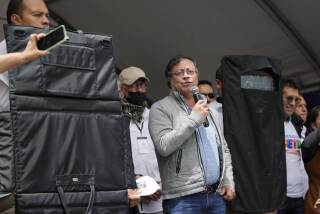Guatemala electoral judges may lose immunity after election

- Share via
GUATEMALA CITY — Guatemala’s prosecutor for vote crimes has asked the Supreme Court of Justice to strip five magistrates of the country’s top electoral authority of their immunity so they can be investigated over fraud allegations by the loser of the Aug. 20 presidential election.
It is the latest example of elections that observers declared to be free and fair being dragged into the courts, even as President-elect Bernardo Arévalo begins the official transition with outgoing President Alejandro Giammattei.
The National Unity of Hope party of former first lady Sandra Torres filed a fraud complaint after the election. The party’s lawyer Carlos López said 164 precinct tallies duplicated votes. The party wants the magistrates of the Supreme Electoral Tribunal investigated for allegedly not carrying out their duties.
Guatemalan President-elect Bernardo Arévalo’s Seed Movement party gets its legal status back, at least temporarily.
On Monday, Arévalo and Giammattei had their first transition meeting, with Organization of American States Secretary General Luis Almagro present. Giammattei made his most direct comments since the election, saying, “Dr. Arévalo will be the next president for the Seed party that won the elections.”
Arévalo previously accused forces in Giammattei’s government of attempting a coup d’etat to keep him from taking power. The leader of the Organization of American States’ electoral observation mission had said legal efforts since the election appeared to be aimed at keeping Arévalo from assuming the presidency.
Over the weekend, the Supreme Electoral Tribunal blocked the suspension of Arévalo’s Seed Movement party, which had come at the request of prosecutors. They allege that there was wrongdoing in the collection of the required signatures years earlier to register the party, which Arévalo had reported to authorities before the election.
More to Read
Sign up for Essential California
The most important California stories and recommendations in your inbox every morning.
You may occasionally receive promotional content from the Los Angeles Times.











